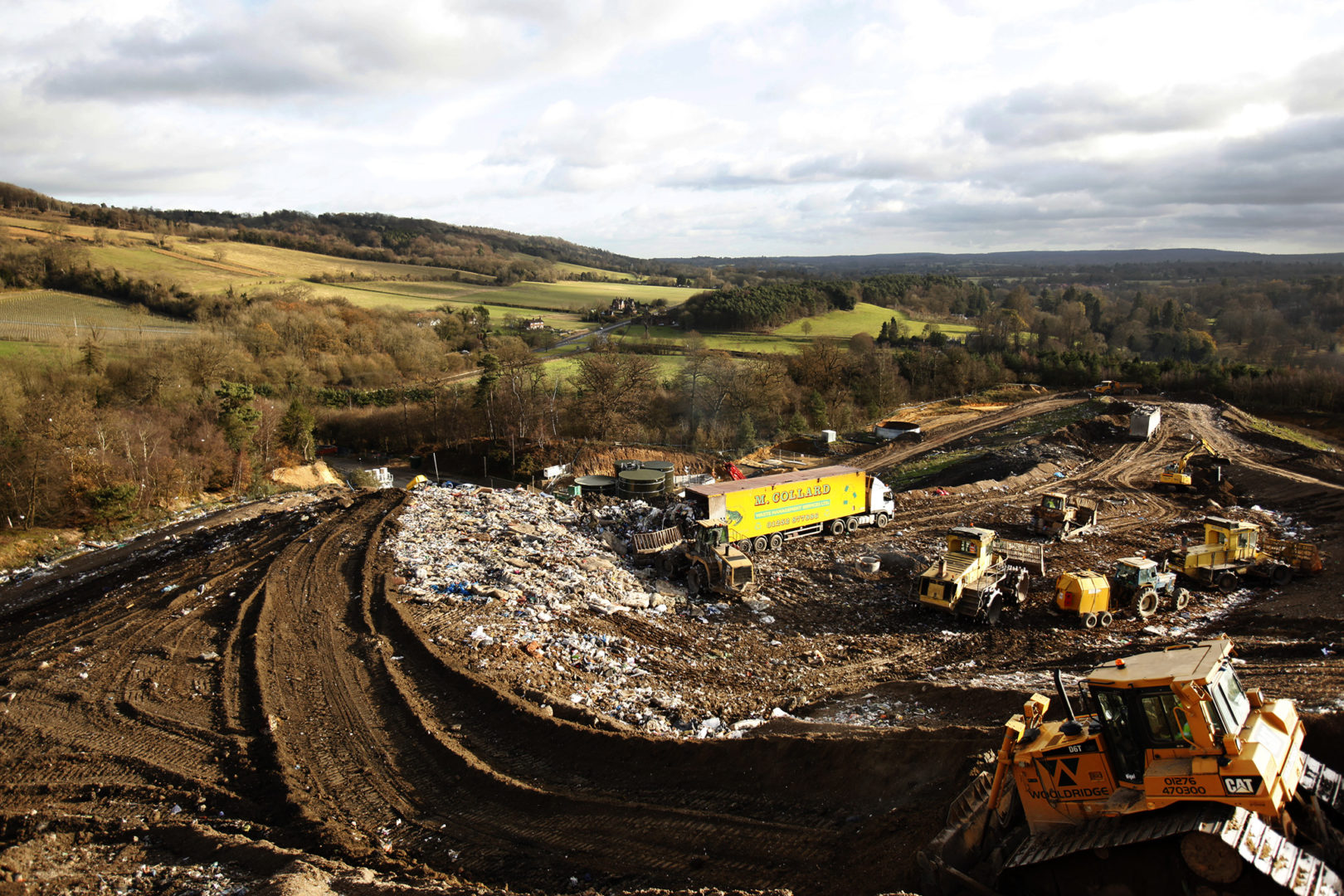10 March – 2 June 2018
A film about landfill in a site of natural beauty and problems of global consumerism
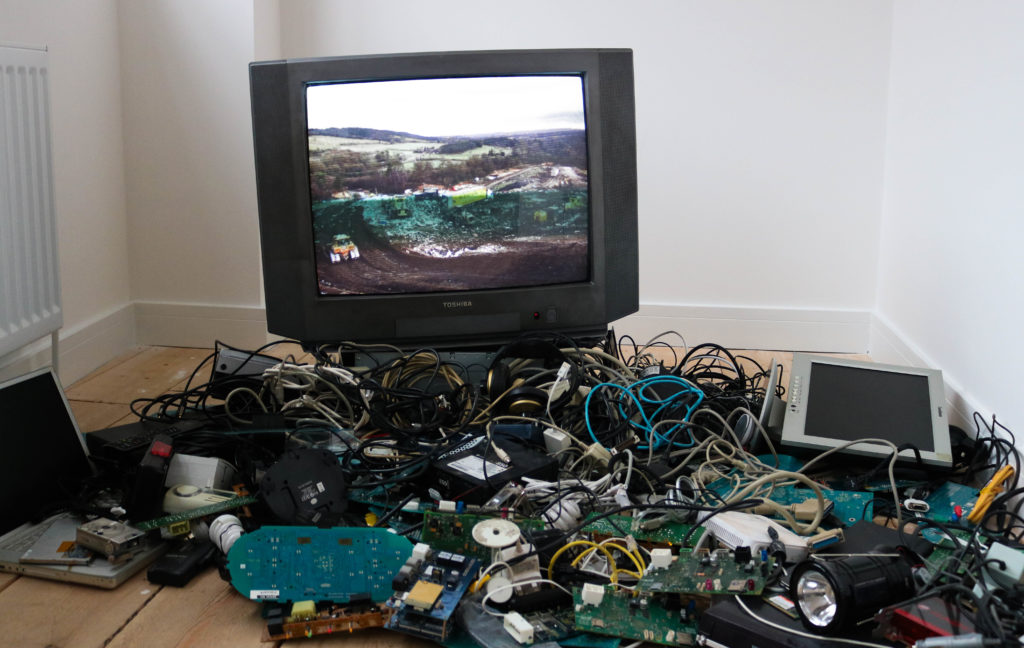
Henry/Bragg are artists Julie Henry and Debbie Bragg. They highlight subject matters that mean a great deal to them. These include the erosion of working class culture and the age of global consumerism. We showed ‘The Surrey Hills’ at GroundWork as part of the TrashArt season. Previously, it toured worldwide in 2012/3 as part of the exhibition Wild New Territories; from London to the Teck Gallery Vancouver and then onto Berlin. Susequently, in March 2014, Film and Video Umbrella invited the artists to show and talk about their work at the Media Space in the Science Museum London, in conjunction with the exhibition ‘Only in England.’
The Surrey Hills
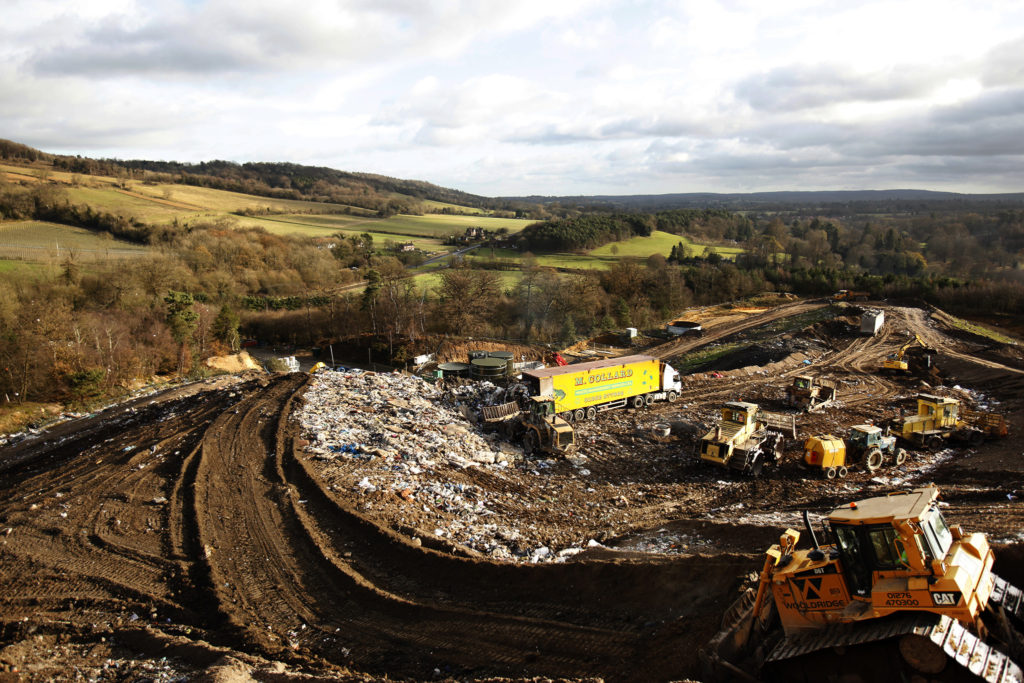
The Surrey Hills : is a story in film by Henry/Bragg, of one man’s mission to recreate a landscape.
The Surrey Hills is a designated area of outstanding natural beauty. Incongruously, it houses a landfill site. The site is almost full. It is the job of one man, Nigel, to hide the unpleasant spectacle of our own waste from us as he reshapes the hills for generations to come. At the time, he takes great pride in his work and talks about it on the film. Now in 2018, the site is full, completely covered and with trees growing. Nigel would have been proud of the result of his topological handiwork. But are the new hills he has created merely an illusion of nature with unknown consequences hidden beneath?
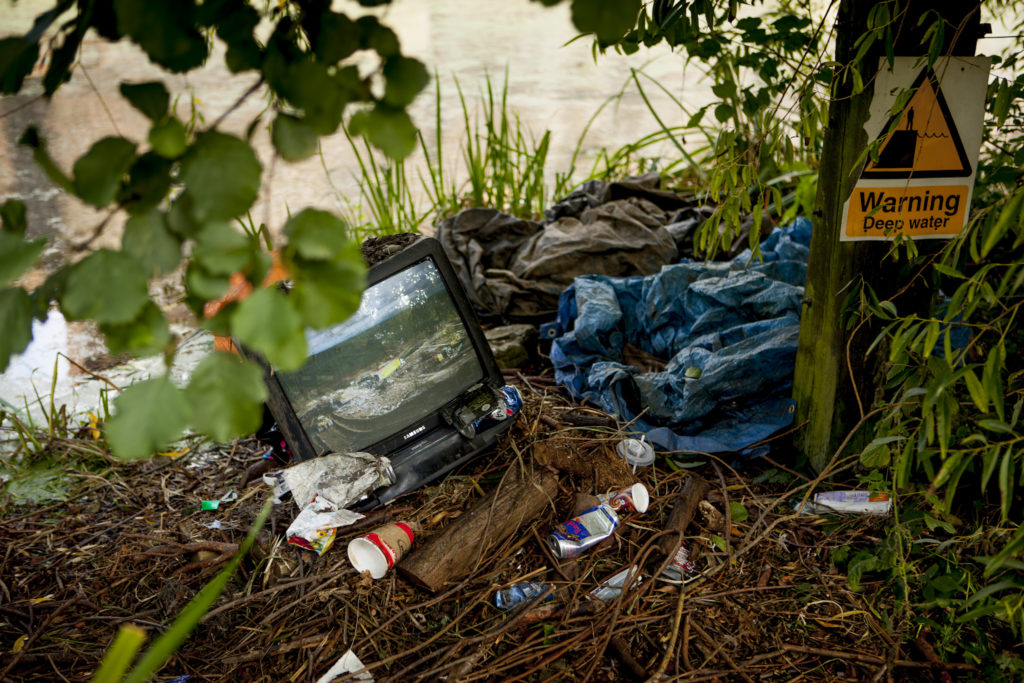
The artists installed the film on an old TV discarded amongst rubbish (see above) for its original show in the touring exhibition ‘Wild New Territories’ in 2012. For the installation for TrashArt at GroundWork Gallery, they chose to use electronic waste, the world’s fastest growing waste problem. You can hear Nigel talking in the snippet of film we made during its installation, below.
Electronic waste is the world’s fastest growing waste problem
There is no doubt that advancements in technology have had huge benefits to society. However, it is becoming increasingly clear that they are also having a negative impact on the environment.
Many of the tech products we buy are planned to have a limited lifespan. Our economic system is based on consumption, our political process endorses it and we don’t seem to be tiring of it. It seems we have an insatiable appetite for the latest technological gadgetry, that quickly becomes outmoded. For example, smartphones now have an average lifecycle of under 2 years. But the implications are huge with enormous consequences for the waste market. Firstly: it only encourages us to replace and update regularly. Secondly, it means we are inevitably depleting the earth’s rich resources. And thirdly: we are creating mountains of electronic waste, with much of it destined for landfill, or the incinerator.
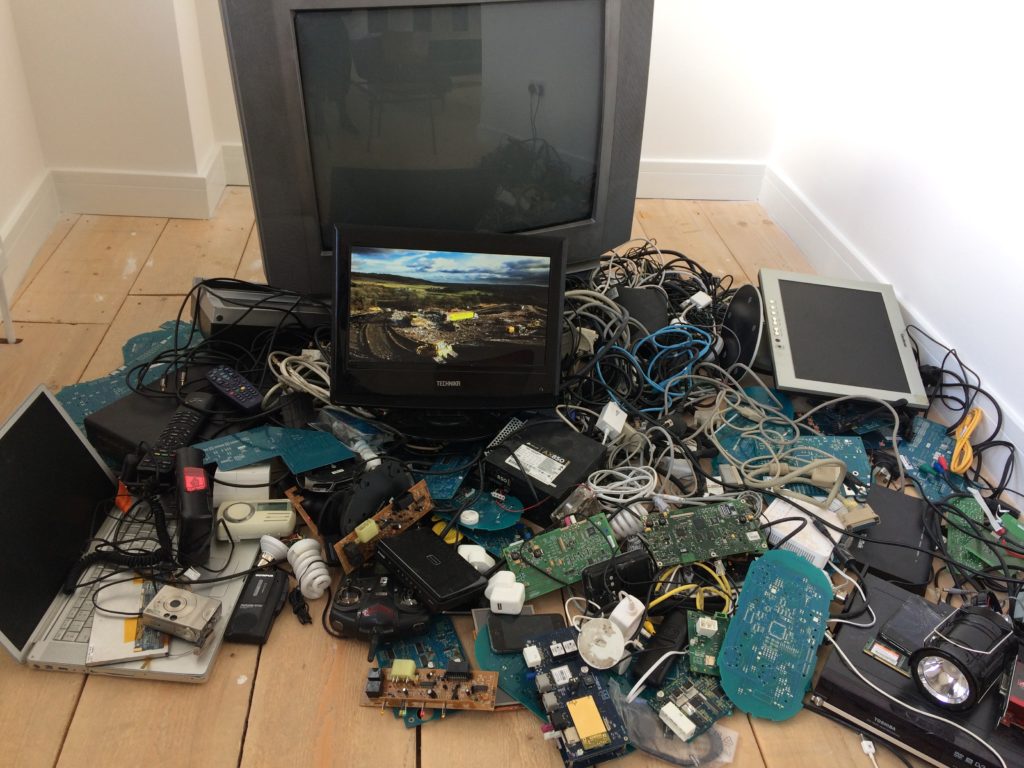
Only 20% of electronic waste is recycled….
United Nations research in 2017 showed, rather shockingly, that only 20% of electronic waste is actually being recycled. It is particularly difficult, and apparently not cost-effective, to extract the multitude of precious metals that have gone into making electronics. So, it all ends up in landfill or incineration. As a result, the chemicals leach into our ecosystem, thus posing considerable environmental and health risks.
Our desire for the latest high tech wizardry has huge consequences for the environment.
Is it time for giant tech companies to take more responsibility for a more environmentally conscious approach?
Could electronic components be designed in order to facilitate recycling and the recovery of precious metals?
Hear more from Henry/Bragg below in the film of their presentation at GroundWork made by James Murray-White in 2018.
More about the artists:
Artist duo, Julie Henry and Debbie Bragg’s first solo exhibition was ‘Talent Show’ at the Anthony Wilkinson Gallery in 2000, followed by ‘Dyed in the Wool’ at the Millais Gallery 2005. They took part in a group show ‘Rundlederwelten’ as part of the cultural festival for the World Cup 2006 at the Martin Gropius Bau Museum, Berlin. In 2011, their Blooming Britain project, a study of people who enter gardening competitions, toured as a large scale outdoor exhibition at gardens around the UK, and then went to the Chelsea Flower Show.
Instagram/Facebook/Twitter: HenryBraggArt
www.henrybragg.com

